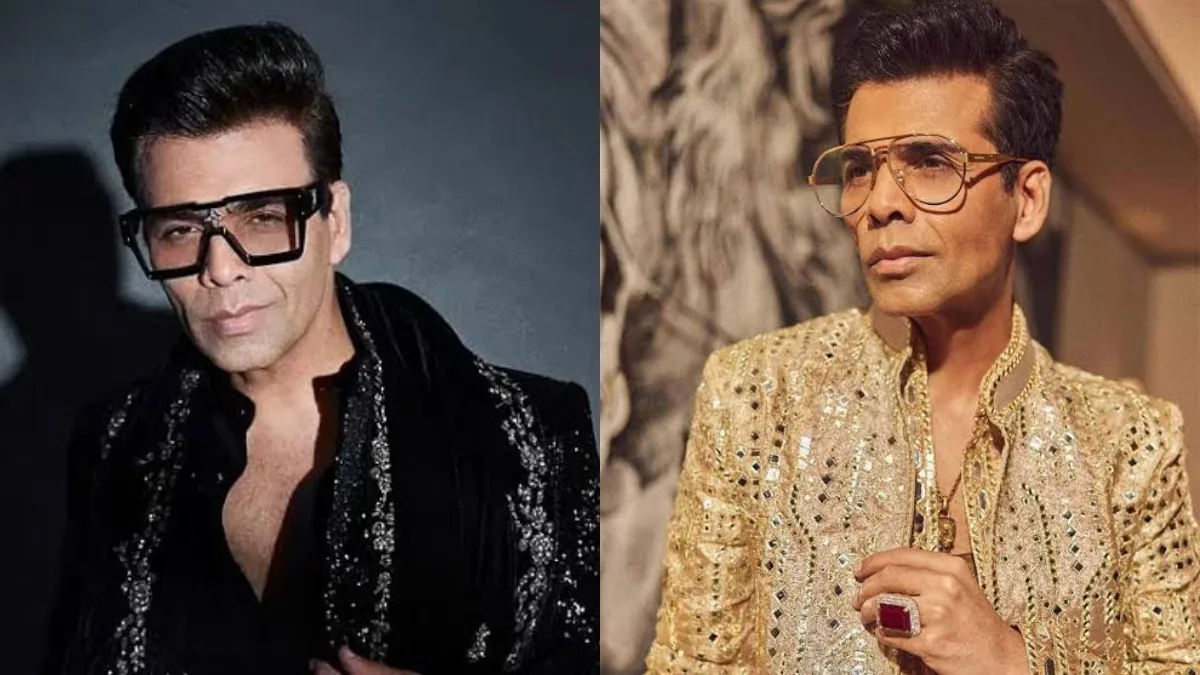Veteran filmmaker Karan Johar, who recently partnered with Adar Poonawalla by selling a 50% stake in Dharma Productions, has never been one to shy away from candid discussions about the inner workings of the film industry. In a recent conversation on the show Game Changers, Johar spoke frankly about two major, interconnected issues plaguing Bollywood’s economics and ethics: the rising practice of manipulating box office figures through “corporate bookings” and the inflating costs associated with large star entourages.
The Problem of ‘Self-Booking’
The term “corporate bookings,” referring to producers allegedly buying large blocks of tickets for their own films to inflate opening weekend numbers, has become a troubling staple in recent industry discourse. Johar didn’t mince words when addressing this practice, preferring to call it “self-booking.”

While he adopts a mock-indifferent tone toward the individuals engaging in it, his underlying concern for the industry’s integrity is palpable. “Everybody does what they have to. If I decide to give myself ₹1 crore, and then I celebrate, have a party at night that I have earned ₹1 crore. Am I a fool, or am I an intelligent man? I leave that for you to decide,” he commented. He added that if a producer is happy spending their own money to achieve a temporary high or a social media post, they should proceed. “You are spending on yourself, so why should anyone judge you for spending your own money?”
However, Johar stressed that this tactic fundamentally harms the entire ecosystem. He believes the industry itself is “defaming itself” by peddling these fabricated figures. The key distinction, he argued, is that the audience cares only about the quality of the film, not whether the box office success is “corporate or desperate.”

He acknowledged that “self-booking” can sometimes offer a much-needed “kickstart energy” to a movie. He even suggested that what is now unethical manipulation might someday evolve into an accepted promotional tactic. Yet, he concluded with a timeless truth: “If the film has to work it will work. That is the bottom line, if it’s good, it will anyway work.”
Johar also questioned the logical sustainability of these costly manoeuvres. “How much will you do, after all? I can’t do it for every day. Can do it say for weekend, then for the first Monday… But at some point I’ll run out. I have to stop. If the film doesn’t have legs, it’s going to fail anyway.”
The Ethical Problem of Star Entourages
Shifting focus, Karan Johar tackled another growing financial drain: the exponential costs associated with large star entourages. While he admitted that these expenses are a relatively small part of a colossal film budget, he views the issue as an ethical problem rather than a financial one.
He pointed to exorbitant charges for hair and makeup artists, joking that he’d prefer his own children, Roohi and Yash, take up the profession because “they are making more money than a lot of other people.”

Johar outlined his stance on what producers should and shouldn’t cover. “I have an ethical problem with entourages, not a financial one. We set a fixed budget for such needs,” he explained. He asserted that actors should pay for anything beyond that fixed amount, such as personal trainers or specific dietary requirements, unless it is a necessary part of the film’s creative demand, like a sports drama requiring a specific physique. For a “regular hero,” Johar stated, their job is to look good and fit, and they should personally manage the associated costs of healthy living.
The Call for Producer Unity and Actor Grace
When questioned about how producers are attempting to curb these rising costs, Johar admitted that a lack of unity is their greatest challenge. “The producers are not united. We often discuss these matters, but no one follows through.”
However, he shared a sign of change, noting that the industry is now pushing back by capping budgets for necessities like hair and makeup. “We tell them upfront this is all we can offer. If you want anything extra, please handle it yourself.” He showed respect for the many actors who are now paying for their own additional hair and makeup.

His final appeal was to the actors, urging them to show some restraint and gratitude. “My problem is with actors who are getting mammoth payments and still expect the producers to pay for their basic needs. Show some grace.” He expressed bewilderment that these “small issues” often become points of contention, especially questioning the necessity for some actors to travel with a massive entourage of six to eight people.
Johar’s dual concerns highlight the precarious balance of Bollywood economics, a challenge he is currently navigating. While a recent production of his, Sunny Sanskari Ki Tulsi Kumari, starring Varun Dhawan and Janhvi Kapoor, struggled at the box office, another Dharma production, the critically acclaimed Homebound directed by Neeraj Ghaywan, has earned widespread praise and was selected as India’s official entry to the Oscars this year. His comments serve as a clear call to action for the industry to prioritize ethical filmmaking and long-term credibility over short-term vanity metrics.


